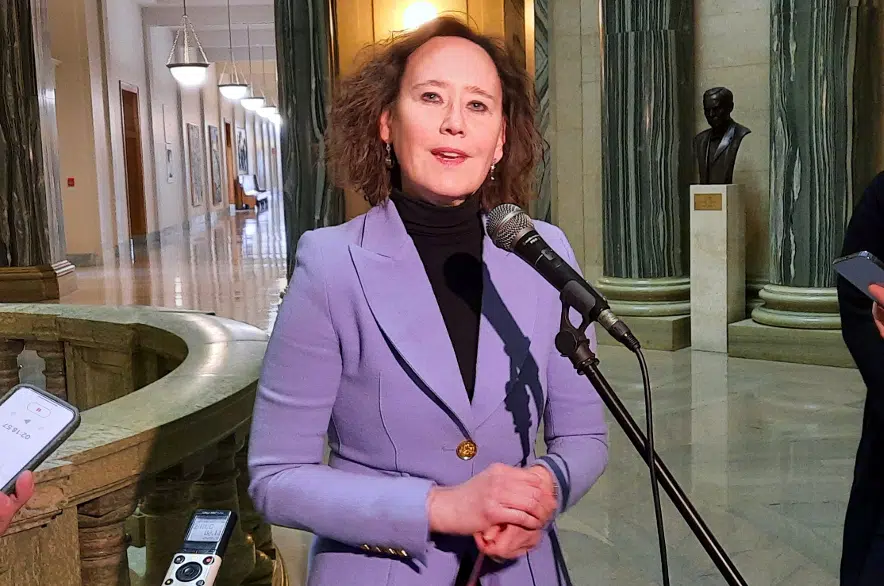The new clean electricity regulations expected from the federal government in the coming months could be a top candidate for consideration by the yet-unformed tribunal operating under the Saskatchewan First Act, according to the province’s justice minister.
The federal government has said it wants to have the country achieve net-zero carbon emissions for electricity generation by 2035, including a phasing out of electricity generated by fossil fuels and an end to conventional coal-generated power by 2030.
Earlier this month, Premier Scott Moe said the province may not follow the clean electricity standards, arguing it would be too expensive and drive up rates.
The federal environment minister responded, saying the goal is to make sure the system can deliver power in an affordable and reliable way.
Now, Saskatchewan Justice Minister Bronwyn Eyre said the regulations would be a top contender for the tribunal to consider.
The Sask. First Act passed and was given royal assent during the current sitting of the legislature. The government said it reaffirms the province’s jurisdiction in areas like natural resources and power generation and would provide for a tribunal that could study legislation and put a dollar amount on how much economic harm those laws or policies would inflict on the province.
The tribunal has yet to be convened, but Eyre said when the clean electricity regulations are released, they could be passed on to the tribunal.
“With that finding of the dollar figure, we would then keep options open to use that as evidence for a legal challenge to the federal government based on irreparable economic harm,” said Eyre.
The minister said she believes the regulations would have an enormous dollar figure attached.
“We don’t have enough hydro in this province to fill that gap. SaskPower has brought in more wind and solar all the time but 2035, no fossil fuel-generated power, is impossible for the province of Saskatchewan,” said Eyre.
SaskPower is investigating the possibility of small modular nuclear reactors , but isn’t even set to make a decision on that front until 2029 and if approved, the first reactor likely wouldn’t be producing power until the latter half of the 2030s.
Eyre said the government is very worried about the coming regulations, which she said could pose serious problems.
“We can’t invest in powering this province – and keeping rates affordable as we do it – with these threats hanging over us. That would represent stranded assets to us and enormous cost for the people of this province,” said Eyre.
The minister said that, with any luck, the real impact of the rules and timeline in Saskatchewan will ultimately sink in for the federal government.
– With files from The Canadian Press











